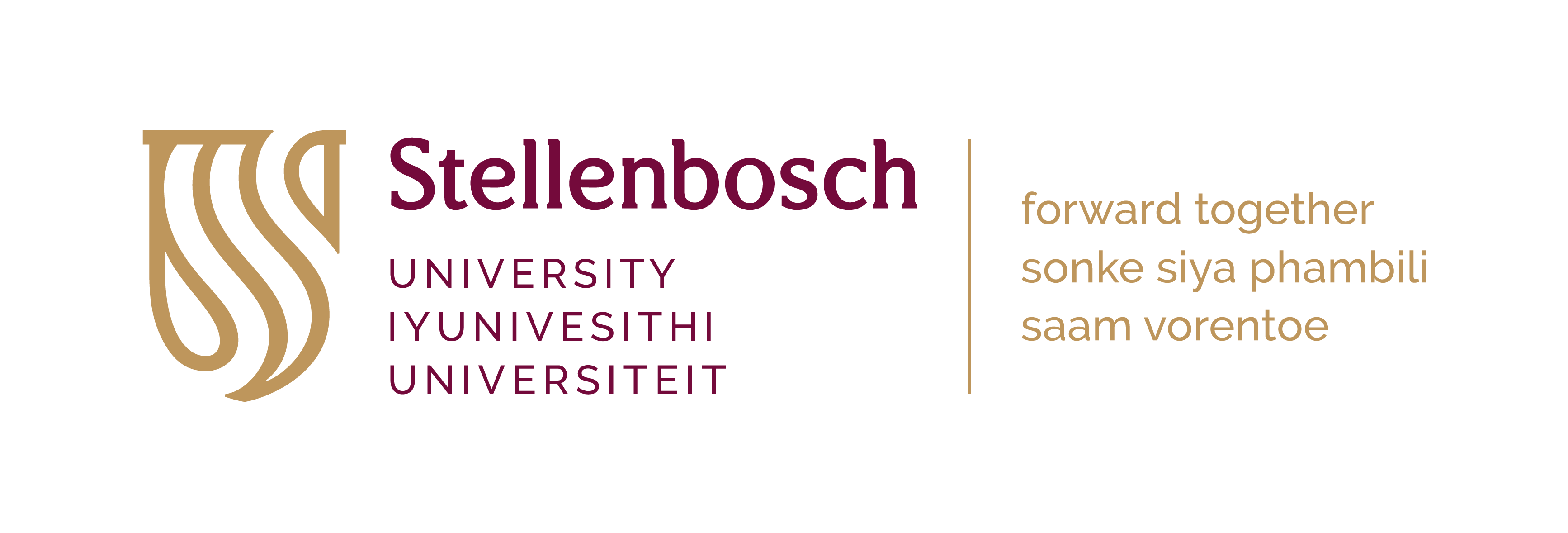The African Tuberculosis Bioinformatics Training Program (hereafter Training Program) is a collaborative educational and capacity development program that will develop and establish a two-year structured Masters of Science (MSc) degree in Bioinformatics, at Stellenbosch University (SU), South Africa.
The Training Program is a collaboration between the Division of Molecular Biology and Human Genetics (MBHG), and the Centre for Bioinformatics and Computational Biology (CBCB) at SU, other African partner institutions (we currently have confirmed partners in Limpopo Province of South Africa, Namibia, Zimbabwe and Zambia) and US investigators from the Fred Hutchinson Cancer Research Center (FHCRC), the National Institute on Minority Health and Health Disparities (NIMHD), NIH and other US institutions. The inclusion of these partners will enable the Training Program to offer one US and one African mentor for each MSc student.
The Training Program will specifically welcome students from Sub-Saharan Africa, and focus on Bioinformatics in the context of infectious diseases that are relevant to Africa. In parallel with the development of the MSc degree, the Training Program will host workshops and provide capacity development support for the faculty of African partner institutions. This will prime these researchers for collaborations in Bioinformatic projects and enable MSc students to return to their countries of origin, and join the research groups of academics who were supported by the Training Program.
Bioinformatics is multidisciplinary in nature, encompassing mathematics, statistics, information technology as well as biology. Few students are strong in all these components. Consequently, many doctoral candidates in bioinformatics are not well prepared. The MSc in Bioinformatics will lay the foundation for better-equipped students to eventually become leaders in infectious disease bioinformatics.
The long-term goals of the program are:
- Strengthen Bioinformatics training in Africa, specifically in the context of relevant infectious diseases
- Transform the higher education sector in Africa in terms of race and gender
- Expand collaborations with other African countries
The Training Program was awarded a two-year NIH D71 Planning Grant to achieve the following objectives:
- Develop a new accredited structured Bioinformatics MSc curriculum, including TB Biology modules, with a strong research training component
- Strengthen and expand African and US TB Bioinformatics partnerships
- Develop a trainee career development and mentorship program, and its evaluation framework
- Develop a faculty training program, and its evaluation process
- Submit an International Research Training Grant (D43) application to the National Institutes of Health (NIH)
- Recruit students
The MSc program will incorporate formal lectures, short courses, workshops and non-classroom-based interventions, including mentoring and research visits. Most importantly, each student will select their own infectious diseases research project with a bioinformatics focus. The SU course instructors and mentors are experienced researchers in Bioinformatics, Tuberculosis, viral and other infectious diseases. They will be supported by SU research and healthcare education support structures, who will guide the curriculum development process.
Duration and structure of the proposed MSc program
The structured MSc is planned to be a 2-year, full-time degree. The degree is expected to include a 6-month block of lectures and an 18-month research block. The lecture block will have a 90-credit weight, and the research component also a 90-credit weight, with credit as defined by the NQF of the UNESCO International Bureau of Education as 10 notional hours of learning. The lectures will be designed to be presented in a virtual or classroom setting and will be interwoven with practical computer sessions where taught topics and concepts are explored as practical problems.
Plans for Professional Development and Career Guidance
The students will participate in career development workshops and seminars to foster their development into independent scientists. In addition, students will be paired with academic mentors (besides their supervisors), to provide individual support for their professional development. Career development activities will include:
- Research proposal writing, grantsmanship, and peer review
- Writing scientific papers
- Project management
- Communication and presentation skills
- Reproducible science
- Networking
- Scientific integrity
Faculty Development
Faculty development for African partner institutions will be an integral part of the Training Program and will continue once the MSc in Bioinformatics has been established. We plan to organize a 2-week workshop once a year for faculty and invite our US partners to serve as trainers in addition to SU trainers. Additional training will be provided via online sessions. Training will include teaching and evaluation methods, ethics and responsible conduct in research, career development, statistical methods, data management and sharing, and grant writing. Additional content will be developed following consultation with African partner institutions to identify development needs.
How to get involved
The Training Program is currently in the two-year D71-funded planning and development stage, which will culminate in an application for the D43 Research Training grant to fund the implementation stage of the structured MSc in Bioinformatics.
During the planning and development stage, partners can get involved in the following activities:
- Gathering information from current molecular biology and bioinformatics students to inform MSc curriculum development
- Identifying key African research training needs in infectious disease bioinformatics
- Identifying faculty development needs for African partner institutions
- Participating in faculty development workshops for African partner institutions
- Express interest to be a US or African mentor for MSc students
- Express interest to be involved in curriculum development
- Express interest to host MSc students for short research visits or internships (Industry)
- Assist in student recruitment by sharing the program advertisement in research, education, and industry networks
Contact details
Program Coordinator: Ms Suné Dyers (sdyers@sun.ac.za)

